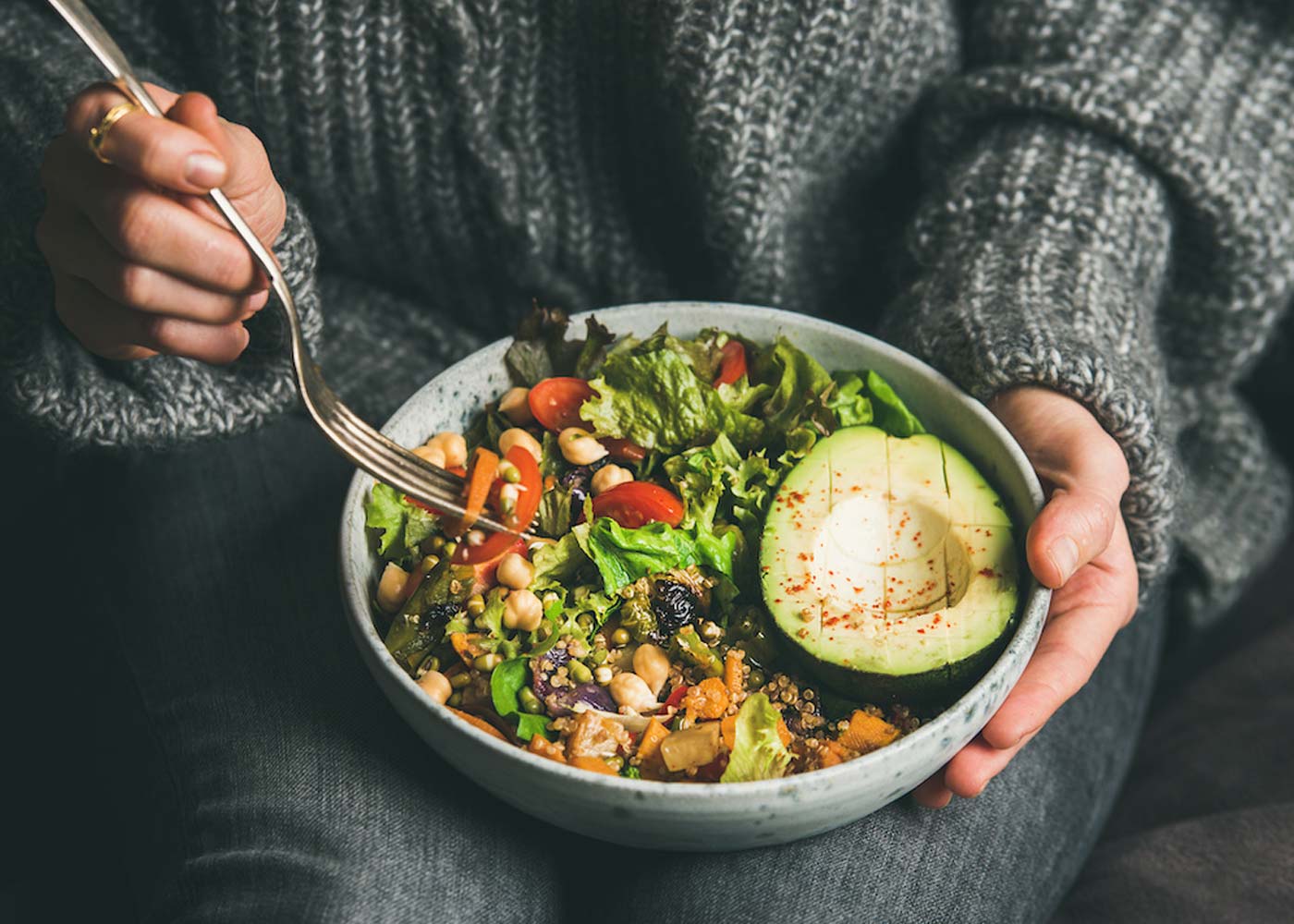
Meal prepping is a helpful strategy for anyone who wants to lose weight, eat healthier, and save time. By planning and preparing your meals and snacks ahead of time, you can ensure that you have nutritious and satisfying options ready to go, while avoiding the temptation of ordering takeout or grabbing junk food. Meal prepping can also help you create a calorie deficit, which is essential for weight loss, without feeling deprived or hungry. In this article, we will show you how to meal prep for weight loss, with simple and delicious recipes, tips, and ideas for a beginner's weight loss diet plan for women. Whether you want to follow a low carb, vegan, Mediterranean, or balanced diet, we have you covered.

Understanding Weight Loss Plans
There are various weight loss
plans available that cater to different needs and preferences.
Understanding the different types of weight loss plans can help women choose
one that is suitable for their goals.
The Importance of Meal Prep in a Weight Loss Diet
Meal prep is a crucial aspect of a weight loss diet as it
helps in portion control and prevents impulsive eating. By prepping meals in
advance, women can ensure they have healthy options readily available and
reduce the temptation for unhealthy choices.
One of the main benefits of meal prep is portion control.
When you prepare your meals in advance, you can measure out the appropriate
serving sizes and pack them accordingly. This prevents overeating and helps you
stick to your calorie goals.
Additionally, meal prep eliminates the need for last-minute
decisions about what to eat. Having pre-made meals on hand ensures that you
always have a healthy option available, which can prevent you from reaching for
convenient but unhealthy choices like fast food or processed snacks.
Another advantage of meal prep is that it saves time and
reduces stress. By planning and prepping meals ahead of time, you don't have to
worry about cooking every day or scrambling to find something to eat when
you're busy or tired. This can make it easier to stick to your weight loss diet
plan.
When it comes to meal prep, investing in quality food storage containers is essential. Look for BPA-free containers, microwave-safe, and secure lids to keep your prepped meals fresh and organized. Consider getting different sizes to accommodate various portion sizes or for different types of meals, such as salads or soups.

Simple Meal Prep Tips for Beginners
When it comes to meal prep, starting small and implementing
a few key strategies can make a big difference. Here are some simple meal prep
tips for beginners:
Plan your meals for the week: Take some time to decide
what meals you want to prep for the upcoming week. This will help you stay
organized and avoid last-minute unhealthy choices.
Create a grocery list: Once you have your meal plan,
make a list of all the ingredients you need. Stick to your list while grocery
shopping to prevent impulse buys.
Invest in quality food storage containers: Having the
right containers will keep your prepped meals fresh and easily accessible. Look
for containers that are durable, leak-proof, and the right size to accommodate
your meals.
Prep in batches: Make use of your time by prepping
meals in batches. For example, roast a large batch of vegetables or cook a big
pot of quinoa to use in multiple meals throughout the week.
Use versatile ingredients: Choose ingredients that can
be used in multiple recipes to save time and money. For example, grilled
chicken breast can be used in salads, wraps, or stir-fries.
Keep it simple: Don't overwhelm yourself with complex
recipes or elaborate meal plans. Start with easy, nutritious recipes and
gradually expand your repertoire.
Label and organize: Label your prepped meals with the
date and contents to avoid confusion. Keep your refrigerator and pantry
organized so you can easily locate your prepped ingredients.
Allocate prep time: Set aside a specific time each week
for meal prep. Treat it as an important appointment to ensure you make it a
priority.
By following these simple meal prep tips, you can make your weight loss diet plan easier to stick with and increase your chances of success.

Creating a Beginner's Weight Loss Diet Plan for Women
When it comes to creating a weight loss diet plan for women,
it's essential to consult with a nutritionist or dietitian. They can help you
design a personalized plan that meets your specific needs and preferences. Here
are some key steps to consider:
Evaluate your current eating habits: Take note of your
typical daily food intake and identify any areas for improvement.
Create a calorie deficit: To lose weight, you
need to consume fewer calories than you burn. Determine your caloric needs and
set a target calorie intake for each day.
Select nutrient-dense foods: Focus on including a
variety of fruits, vegetables, lean proteins, whole grains, and healthy fats in
your diet. These foods will provide essential nutrients while keeping you
satisfied.
Plan your meals: Take the time to plan your meals for
the week, including breakfast, lunch, dinner, and snacks. This will help you
stay organized and avoid making impulsive, unhealthy food choices.
Monitor portion sizes: It's easy to overeat, especially
when you're not paying attention to portion sizes. Use measuring cups or a food
scale to ensure you're consuming appropriate amounts of food.
Stay hydrated: Drinking enough water is crucial for
weight loss and overall health. Aim for at least 8 glasses of water per day.
Include physical activity: In addition to a healthy
diet, regular exercise is important for weight loss. Find activities you enjoy
and make them a part of your daily routine.
Remember, everyone's weight loss journey is unique. Be patient with yourself and celebrate small victories along the way. With a well-designed diet plan and commitment to healthy habits, you can achieve your weight loss goals.

Balancing Nutrients in Your Weight Loss Diet
When it comes to a weight loss diet, it is crucial to focus
on balancing nutrients to ensure overall health and well-being. Here are some
tips to help you achieve this:
Include a variety of food groups in your meals: Make sure to
incorporate fruits, vegetables, whole grains, lean proteins, and healthy fats
into your diet. This will provide a wide range of nutrients while keeping your
meals interesting and flavorful.
Monitor portion sizes: Although it's important to include
all food groups, keeping an eye on portion sizes is key to weight loss. Be
mindful of serving sizes and don't overeat, even if the food is healthy.
Choose nutrient-dense foods: Opt for foods that are rich in
vitamins, minerals, and other essential nutrients. Examples include leafy
greens, berries, nuts, seeds, and lean meats.
Avoid empty calories: Try to limit your intake of sugary
drinks, processed snacks, and foods high in added sugars. These provide little
nutritional value and can hinder weight loss progress.
Stay hydrated: Drinking enough water is crucial for overall
health and can help curb cravings. Aim to drink at least 8 cups of water per
day.
By following these guidelines, you can ensure that you're providing your body with the necessary nutrients while also working towards your weight loss goals. Remember, it's always a good idea to consult with a nutritionist or dietitian to personalize your diet plan.

Staying Motivated on Your Weight Loss Journey
Embarking on a weight loss journey can be challenging, but
staying motivated is key to reaching your goals. Here are some tips to help you
stay on track:
Set Realistic Goals: It's important to set attainable
goals that are specific, measurable, achievable, relevant, and time-bound
(SMART). Break your overall weight loss goal into smaller milestones to keep
yourself motivated along the way.
Track Your Progress: Keep a record of your weight loss
progress, such as weekly weigh-ins or measurements. Seeing your achievements
can provide a sense of accomplishment and inspire you to keep going.
Find a Support System: Surround yourself with
supportive friends, and family members, or join a weight loss community. Having
people who understand and encourage your journey can make a significant
difference in your motivation.
Reward Yourself: Celebrate your milestones with
non-food rewards. Treat yourself to something you enjoy, such as a new workout
outfit, a spa day, or a small vacation. These rewards can give you something to
look forward to and reinforce your progress.
Stay Positive: Embrace a positive mindset and focus on
the changes you are making rather than any setbacks. Remember that weight loss
is a journey, and it's normal to have ups and downs. Stay committed to your
goals and believe in your ability to achieve them.
By implementing these strategies, you can stay motivated and determined on your weight loss journey. Remember, every small step counts and your dedication will lead you to success.

Conclusion
In conclusion, meal prep plays a crucial role in simplifying
a beginner's weight loss diet plan for women. By understanding the different
types of weight loss plans and consulting with a nutritionist or dietitian,
women can create a personalized plan that suits their goals and preferences.
Meal prep helps in portion control, prevents impulsive eating, and ensures that
healthy options are readily available. Balancing nutrients and monitoring
portion sizes are important for maintaining overall health while achieving
weight loss goals. Staying motivated on the weight loss journey can be aided by
setting realistic goals, tracking progress, and finding a support system. With
the right knowledge and strategies, women can successfully navigate their weight
loss journey and enjoy the benefits of a healthier lifestyle.




















